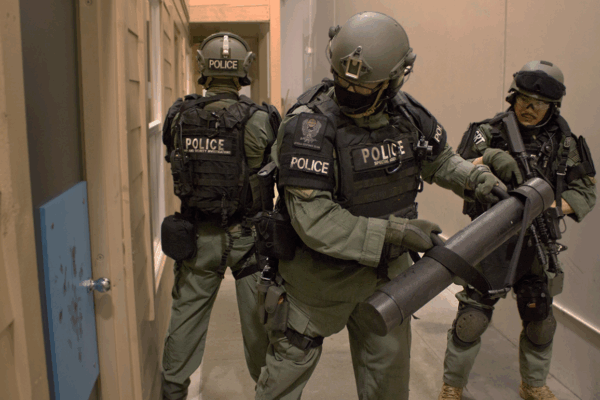Maine lawmakers are attempting to roll back important restrictions on deadly no-knock raids, endangering both civilians and law enforcement. ACLU of Maine Policy Counsel Michael Kebede shared the following remarks with the Joint Standing Committee on Judiciary in opposition LD 1087.
No-knock raids are a staple of the failed war on drugs. They endanger both civilians and law enforcement officers. Police barging into people’s homes increases the potential for violence, as recent widely-publicized examples have shown and as statistical analyses have confirmed. Even where people end up physically unscathed, no-knock warrants publicly humiliate innocent people and often destroy their property in the process.
These legalized home invasions are hectic and unpredictable by their very nature. If someone pounded on your door and kicked it open in the dark of night, what would you do?
Executing no-knock warrants has injured dozens of innocent people, and killed others. During one raid in Georgia, officers threw a flash bang grenade into a 19-month old baby’s crib; the child had to be placed in a medically induced coma as a result and his face is permanently disfigured. In Louisville, Kentucky, police killed Breonna Taylor and recklessly endangered a nearby family, all in search of drugs that never existed and a person they already had in custody.
Moreover, no-knock raids disproportionately terrorize communities of color, which have borne the brunt of the war on drugs. An ACLU study of over 800 raids nationwide found that nearly two-thirds of these raids are in search of drugs, and Black and Latino people accounted for 61% of drug targets. SWAT teams found contraband in only about one third of the drug cases, meaning even if one believes a raid necessary for a drug search, innocent people were placed in life-threatening situations in roughly two out of every three drug raids.
Overwhelming state violence through no-knock warrants is inconsistent with our tradition of protecting the right of people to be left undisturbed in the privacy of their own home.
If enacted, this bill would make four changes to Maine’s no-knock warrant law, each of which would endanger ordinary people. We focus on the first two as the most dangerous. First, it would remove important guidance that, in-part, defines a no-knock warrant as the execution of a warrant without waiting 20 seconds after knocking before entering. The push to repeal this important reform is based on the flawed assumption that people suspected of crimes will attempt to destroy evidence in those 20 seconds, when in reality, people use those few seconds to do things like make themselves decent, contain a pet, or turn off the stove before answering the door. Second, this bill would allow police to obtain a no-knock warrant if they fear that evidence may be destroyed, valuing the potential seizure of drugs over the safety and lives of civilians and law enforcement officers.
No-knock raids also expose our governments to financial liability. For instance, the killing Breonna Taylor resulted in a $12 million settlement and countless taxpayer dollars on lawsuits and state and federal investigations. When governments allow their officers to use these dangerous and unnecessary tactics, insurance companies pass on the costs.

